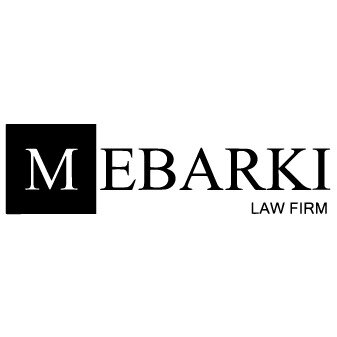Best Marine Insurance Lawyers in Algiers
Share your needs with us, get contacted by law firms.
Free. Takes 2 min.
List of the best lawyers in Algiers, Algeria
About Marine Insurance Law in Algiers, Algeria
Marine insurance in Algiers, Algeria encompasses a range of policies that provide coverage for losses or damages related to the shipping and transport sector. This includes insurance for vessels, cargo, and marine liabilities. Given Algeria's strategic location along the Mediterranean Sea and its significant trade routes, marine insurance plays a vital role in facilitating commerce while mitigating the risks associated with maritime operations. In Algiers, the legal framework for marine insurance is influenced by a blend of local laws, international regulations, and traditional maritime practices.
Why You May Need a Lawyer
Individuals and businesses may need legal advice in marine insurance for several reasons. Legal assistance may be necessary when drafting or reviewing insurance contracts to ensure comprehensive coverage and understanding of terms. Lawyers are also important when handling claims, as disputes can arise over the interpretation of policy terms after a loss occurs. Additionally, legal expertise is needed to navigate liability issues that involve third parties, particularly if there is damage to cargo or injury to crew members. In complex cases involving cross-border transactions and multiple jurisdictions, the insights of a specialized marine insurance lawyer are invaluable.
Local Laws Overview
In Algiers, marine insurance is governed by a combination of local maritime laws and international conventions. Key local legislation includes the Algerian Maritime Code, which outlines the legal obligations of shipowners and insurers. The code addresses various aspects of marine insurance, such as liability limits, policyholder rights, and claim procedures. Additionally, international standards, such as those established by the International Maritime Organization (IMO) and other global entities, supplement Algeria’s national framework to ensure consistency with global practices. Understanding the nuances of these regulations is crucial for policyholders and insurers alike.
Frequently Asked Questions
1. What is covered under marine insurance policies in Algiers?
Marine insurance typically covers damage or loss to cargo, ships, and other maritime property. Policies may also include coverage for third-party liabilities arising from maritime operations.
2. How can a policyholder file a claim in Algiers?
Policyholders must notify their insurer promptly and provide documentation supporting their claim, such as a bill of lading and survey reports. It is advisable to consult a lawyer to navigate potential legal issues.
3. Are there specific local conditions that affect marine insurance in Algiers?
Algerian marine insurance is influenced by local legal requirements, such as registration of vessels and adherence to security and safety regulations outlined in the Algerian Maritime Code.
4. Can international insurance companies operate in Algiers?
Yes, but they must comply with Algerian regulatory requirements and often partner with local entities to offer marine insurance products.
5. What are common exclusions in marine insurance policies?
Common exclusions typically include war risks, piracy, and acts of terrorism unless specified otherwise in the policy.
6. Do shipping companies need separate liability insurance?
Yes, liability coverage is often separate from hull and cargo insurance and is essential to cover potential legal liabilities arising from maritime operations.
7. How are disputes in marine insurance resolved?
Disputes are typically resolved through negotiation, arbitration, or, if necessary, through litigation in Algerian courts. Lawyers specializing in marine insurance can provide guidance throughout this process.
8. Is it necessary for cargo owners to have marine insurance?
While not obligatory, it is highly recommended. Insuring cargo protects owners from financial losses due to damage or loss during transit.
9. What role does the Algerian government play in marine insurance?
The government regulates the industry through legislation and oversight agencies to ensure compliance with legal and safety standards.
10. Are there tax implications for marine insurance policies?
Yes, policyholders may be subject to local taxes. It is advisable to consult with a tax professional for guidance on specific tax obligations.
Additional Resources
For those seeking more information or assistance, the Algerian Ministry of Transport and Public Works is a key resource, as it oversees maritime affairs. The Algerian Insurance Association (L'Union Algérienne des Assurances et de Réassurances) may also provide guidance. Additionally, international organizations like the International Maritime Organization (IMO) offer resources and guidelines that are relevant for marine insurance practitioners.
Next Steps
If you require legal assistance in marine insurance, consider consulting a lawyer with expertise in maritime law. Schedule a consultation to discuss your specific needs and ensure that your policies align with both local and international regulations. Additionally, review your current insurance contracts with legal counsel to identify any areas of concern and make informed decisions about coverage options tailored to your maritime operations.
Lawzana helps you find the best lawyers and law firms in Algiers through a curated and pre-screened list of qualified legal professionals. Our platform offers rankings and detailed profiles of attorneys and law firms, allowing you to compare based on practice areas, including Marine Insurance, experience, and client feedback.
Each profile includes a description of the firm's areas of practice, client reviews, team members and partners, year of establishment, spoken languages, office locations, contact information, social media presence, and any published articles or resources. Most firms on our platform speak English and are experienced in both local and international legal matters.
Get a quote from top-rated law firms in Algiers, Algeria — quickly, securely, and without unnecessary hassle.
Disclaimer:
The information provided on this page is for general informational purposes only and does not constitute legal advice. While we strive to ensure the accuracy and relevance of the content, legal information may change over time, and interpretations of the law can vary. You should always consult with a qualified legal professional for advice specific to your situation.
We disclaim all liability for actions taken or not taken based on the content of this page. If you believe any information is incorrect or outdated, please contact us, and we will review and update it where appropriate.








